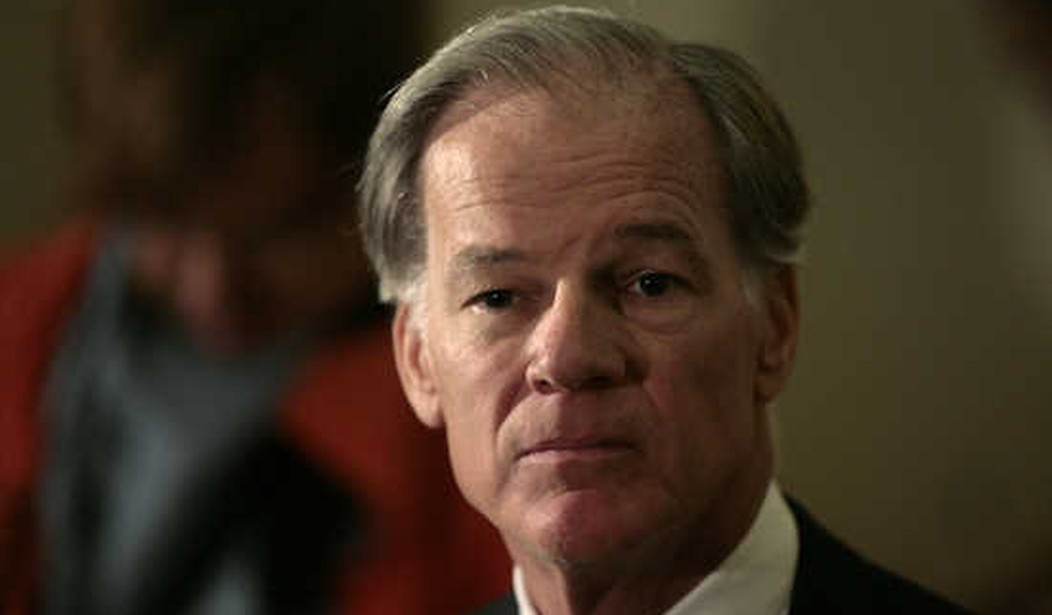Much like the previous contest between Dannel Malloy (D) and Republican Tom Foley, the race for the governorship in Connecticut came down to the wire.
This race was not as close as their first go-round in 2010, but around noon on Wednesday Foley conceded to the incumbent governor. With 99 percent of precincts reporting at about 3 p.m., Malloy was ahead 51 percent to 48 percent.
“Governor Malloy won this election with fewer votes than we won in 2010,” Foley said in his concession email to supporters. “We are part of a great democracy – the United States of America. We choose our leaders through the democratic process. I am privileged to have participated in that process. We did not win, but we were on the field and fought a good game.”
“Our ideas will be on citizens’ minds as our leaders steer us forward. You will have an opportunity to fight for those ideas again.”
In the email, Foley, the former U.S. ambassador to Ireland, blamed “relentless negative advertising” for keeping many of his 2010 supporters home and did not offer congratulations to his opponent.
Joe Visconti, who petitioned his way onto the ballot, could have more likely been a reason for Foley’s defeat than the negative ads. Visconti, who campaigned on Second Amendment rights and repealing Common Core, pulled in just 1 percent of the vote but many of those voters would have likely sided with Foley if Visconti was not an option.
However, if Visconti’s nearly 11,000 votes were all put on Foley’s total, he would still trail Malloy by about 15,000 votes — a far cry from the 2010 contest in which Malloy won by about 6,000 votes. Foley did not concede that race until Nov. 8.
“No matter how large the margin, no matter how small the margin we’re standing here today,” Malloy said during his victory speech. “We don’t have the final numbers but we know what the big numbers are and we are going to win this thing.”
Foley, at the time, was not thrilled with how Malloy handled his victory announcement and made sure his supporters knew how he felt during his concession speech.
“The way this is supposed to work is when you have firm numbers and you know you’ve lost the race you’re supposed to call the winner and congratulate him,” Foley said during his remarks. “…He didn’t give me a chance.”
Election Day in Connecticut, and the days leading up to it, was not without drama as the Malloy campaign filed a complaint in Hartford Superior Court to keep two polls in Hartford open until 9 p.m. because of delays and other problems.
According to the complaint, the polling places did not open at 6 a.m. as required by state law. The complaint includes witness observations that indicate 12 polling places were not open on time and nine others had wait times of 30 to 90 minutes. The complaint also says that once word spread by social media that the polls had not yet opened “voter turnout was further suppressed.”
The judge ultimately decided to keep the polls open but only until 8:30 p.m.
On Nov. 2, just two days before the general election, Visconti officially suspended his campaign for governor and urged his supporters to vote for Foley. However, it was too late; he failed to file the proper withdrawal paperwork and his name still appeared on the ballot.
Visconti offered little in the way of explanation for his decision and did not return calls or emails seeking comment for the last-minute move. The only insight he offered was via a Facebook post that indicated his decision was “in light of our very low poll numbers and Tom Foley being small percentage points behind Governor Malloy.”
“Tom needs every vote we can provide to defeat Governor Malloy,” Visconti wrote on the post, which featured an image of himself with Foley.
Malloy is already looking forward, past the battle with Foley that, undoubtedly, left both men bruised. During the debates the opponents took aim at each other’s credibility and policies. Malloy said Foley offered no clear path forward and Foley pointed to the state’s poor recovery following the recession and the record tax hike under the governor.
“We will have a full legislative agenda ready to go by Jan. 7,” Malloy said during his victory speech. “I don’t sit around a whole lot and I have things I want to get done and I know that this state needs to get done.”
The governor had yet to make any public statements since his victory speech early Wednesday. For Foley, although he had not made any statement about his political career, his demeanor following the election seems to indicate it is the end of the political road.
“We did as well as a Republican can do in Connecticut,” Foley said.
To his credit, he did as well as a Republican in the state can do in two consecutive elections.









Join the conversation as a VIP Member